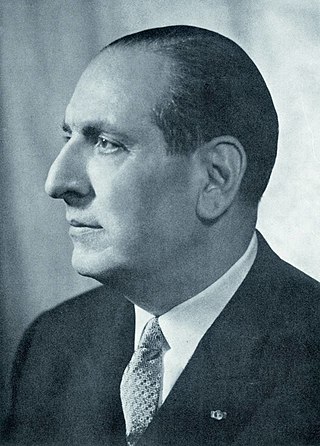
Charles Helou was a Lebanese politician who served as the 4th president of Lebanon from 1964 to 1970.
Samir Kassir was a Lebanese-Palestinian journalist of An-Nahar and professor of history at Saint-Joseph University, who was an advocate of democracy and prominent opponent of the Syrian occupation of Lebanon. He was assassinated in 2005 as part of a series of assassinations of anti-Syria Lebanese political figures such as Rafic Hariri and George Hawi.

Gebran Ghassan Tueni was a Lebanese politician and the former editor and publisher of daily paper An Nahar, established by his grandfather, also named Gebran Tueni, in 1933. He was assassinated in 2005 as part of a series of assassinations of Syria's critics in Lebanon.
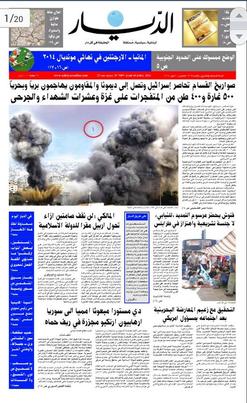
Ad-Diyar is an Arabic-language daily newspaper published in Beirut, Lebanon, which has been in circulation since 1941.

Nassib Lahoud was a Lebanese political figure. He held various posts including Member of parliament, Ambassador to the United States of America, and Minister of State. He was also head of the Democratic Renewal Movement and a leading figure in the March 14 coalition, which nominated him as their presidential candidate when they held the parliamentary majority in 2008. His election was vetoed by Hezbollah and its allies, who refused to attend parliament and threatened not to recognise any president who was not the product of a consensus agreement between Lebanese political forces. President Michel Suleiman was elected to the post on 25 May 2008.
Michel Pharaon is Lebanese politician, and was Minister of Tourism in Lebanon. He was the Minister of State for Parliamentary Affairs in the Fouad Siniora government. In the general election held in 2000, he won a seat from Beirut's first district. He ran on the list of late Rafik Hariri.

The National Bloc is a secular political party in Lebanon that was founded in 1943 as a parliamentary bloc for the 1943 Lebanese elections by Émile Eddé but was later formed as a political party in 1946.

Saint Joseph University of Beirut is a private Catholic research university in Beirut, Lebanon, founded in 1875 by French Jesuit missionaries and subsidized by the Government of France during the time when Lebanon was under Ottoman rule.

Michel Elefteriades is a Lebanese politician, artist, producer and entrepreneur. He is noted in the Arab world for his unorthodox beliefs and opinions, which have generated controversy and ignited passionate responses from his supporters and detractors alike.
Michel Chiha (1891–1954) was a Lebanese banker, a politician, writer and journalist. Along with Charles Corm, Petro Trad and Omar Daouk, he is considered one of the fathers of the Lebanese Constitution. His ideas and actions have had an important influence on the shaping of the modern Lebanon.

Najib Azmi Mikati is a Lebanese politician and businessman who has served as the prime minister of Lebanon since September 2021. He also leads a cabinet that has assumed the powers of the president of Lebanon since the term of president Michel Aoun ended in October 2022. He previously served as prime minister from April to July 2005, and from June 2011 to February 2014. He also served as Minister of Public Works and Transport from December 1998 to 2003.
Sfeir is a Maronite Christian clan surname from Lebanon, which appears with the highest density in the mountainous Keserwan District. As a result of the Lebanese diaspora, the name has flourished in North and South America, Western Europe, Australia, the Arabian peninsula, and west Africa.

Beirut I is an electoral district in Lebanon. The district elects eight members of the Lebanese National Assembly – three Armenian Orthodox, one Armenian Catholic, one Greek Catholic, one Greek Orthodox, one Maronite and one Minorities.
Ayk was an Armenian daily newspaper published in Beirut Mondays to Fridays for the period 1953 to 1975. It was established by Dikran and Lucy Tosbat, as an independent non-partisan Armenian daily in stark contrast to the three other Lebanese Armenian dailies that were partisan and official party organs: Aztag, the organ of the Armenian Revolutionary Federation (Tashnag), Ararad, the organ of the Social Democrat Hunchakian Party (Hentchag) and Zartonk, the organ of the Armenian Democratic Liberal Party.
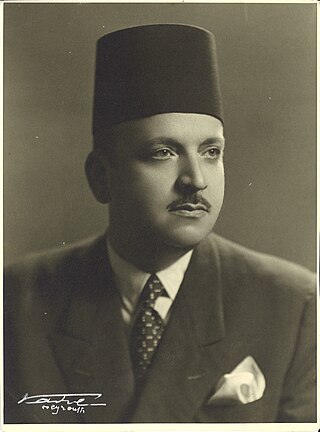
Kazem El-Solh was a Lebanese politician, a diplomat and the founder of a political party and a newspaper. He was a member of parliament in Lebanon and served as the country's ambassador to Iraq.
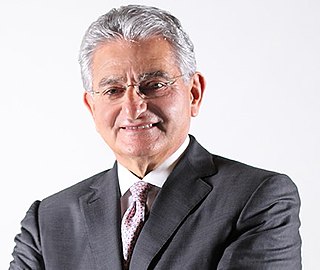
Salim Georges Sfeir is a Lebanese – Swiss banker and financier. He is the chairman and Chief Executive of Bank of Beirut S.A.L in Beirut, Lebanon since 1993 and the chairman of Association of Banks in Lebanon since June 29, 2019.

Antoun Sehnaoui is a Lebanese banker and film producer, He is the chairman of the board of the SGBL Group, comprising the Société Générale de Banque au Liban (SGBL), the Société Générale de Banque in Jordan (SGBJ) and financial company Fidus Wealth Management. He is also the chairman of the board of the Compagnie Financière Richelieu, a European banking group comprising Banque Richelieu France, Banque Richelieu Monaco and Richelieu Gestion. He is also a member of the board of the Lebanese Banking Association, and a member of the Academy of Motion Picture Arts and Sciences.
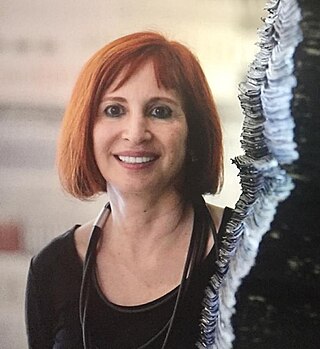
Nada Sehnaoui is a visual artist and political activist. Her artworks, spanning painting, mixed media works, sculpture and installations, have been widely exhibited internationally, and have been featured in the press and print publications worldwide.
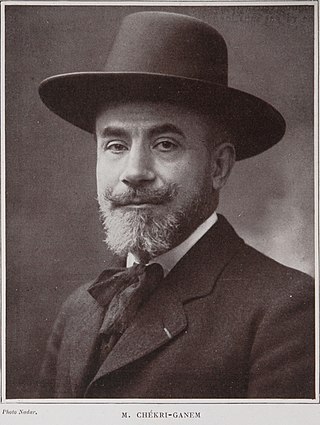
Chekri Ganem was a Lebanese intellectual, writer, playwright, poet, and journalist. He traveled extensively, and finally settled in France in 1895. In Paris, he became a dynamic political activist and leader in the Syro-Lebanese diaspora. He founded the Société des Amis de l'Orient in 1908 and the Lebanese Committee of Paris in 1912. He also played a significant role in the Arab Congress of 1913, where he was elected vice president. Ganem was a proponent of Lebanon's independence from the Ottoman Empire. He is considered the founding father of Francophone Lebanese literature, and his literary work was overtly political, becoming most manifest in his poetry collection Ronces et Fleurs. His masterpiece, Antar, was a widely-acclaimed theatrical fantasy, and an open manifesto of Arab nationalism. Ganem was named Commander of the Legion of Honor shortly before his death in 1929.














